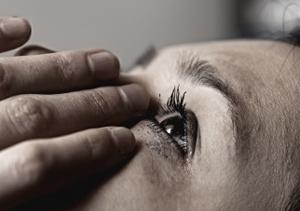The crying game
Work is underway to discover if human tears can play a role in the early diagnosis of breast and prostate cancer.
Work is underway to discover if human tears can play a role in the early diagnosis of breast and prostate cancer.

Work is underway to discover if human tears can play a role in the early diagnosis of breast and prostate cancer, as well as confirming if a person has a predisposition to developing the diseases.
The UNSW research, in collaboration with the Brien Holden Vision Institute, St George Hospital and Minomic International involves the study of tear fluid proteins and aims to develop a quick and non-invasive diagnostic and monitoring test for prostate and breast cancers.
Lead researcher, Professor Mark Willcox at the School of Optometry and Vision Science, says the two cancers were chosen for the study as both conditions are associated with hormone changes that are also involved in the production of tears from the lachrymal gland.
Using mass spectrometry and multiple reaction monitoring, researchers have determined the level of a biomarker protein in an individual’s tear fluid and are examining these biomarkers to detect clear differences in combinations of over 100 proteins in the tear fluid.
“We have shown that at least five potential biomarkers are present in tears and will change with cancer,” he said. “What we’re hoping to show is that particular proteins are different, and that it’s a combination of proteins that’s best to predict cancer.”
Willcox estimates that the test, which involves the painless collection of a microlitre of tear fluid by placing a tube at the corner of the eye, will be on the market in five to 10 years. It will enable GPs, optometrists, dentists and nurses to assess a patient’s risk of getting cancer, determine if they have cancer, and track the progress of therapy.
For the full story, read the latest issue of Uniken.